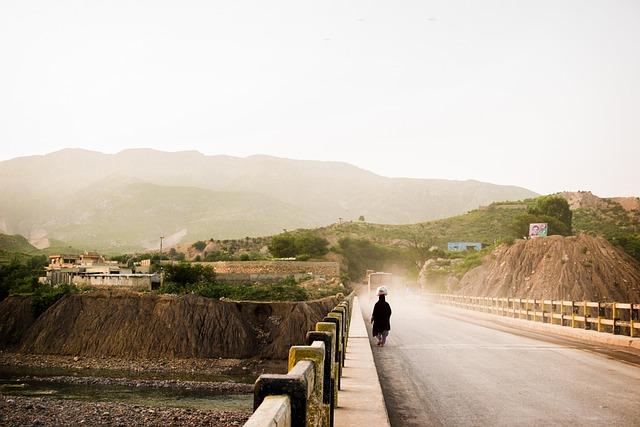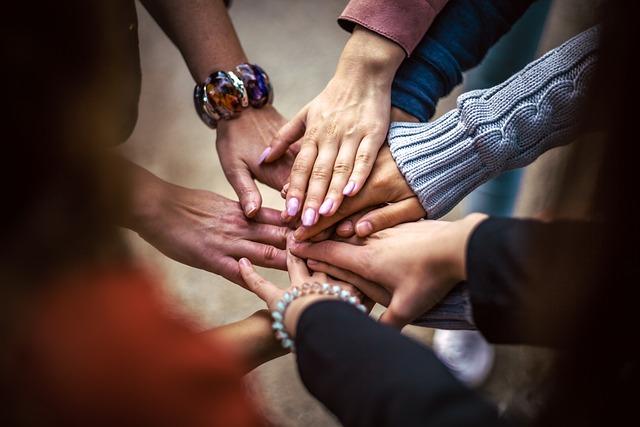In a world increasingly defined by its contrasts, Pakistan stands at a pivotal crossroads. A vibrant tapestry woven from rich cultural threads and diverse identities, the nation is nonetheless grappling with profound social challenges that threaten to splinter its social fabric. From economic disparity and gender inequity to ethnic tensions and ever-evolving political landscapes, these divides call for not only understanding but proactive engagement. As we delve into the multifaceted issues facing Pakistan today, this article explores innovative approaches and grassroots movements that are striving to bridge these gaps, fostering dialogue and unity in a society yearning for cohesion. Together, we will examine the resilience of communities, the role of education, and the power of inclusive policies in paving the way toward a more harmonious future. Join us on a journey through the heart of Pakistan, where hope persists amid adversity, and call for action rings louder than ever.
Exploring the Fabric of Unity: Understanding Pakistans Social Fragmentation
The complexities of Pakistan’s social landscape can often be likened to a rich tapestry woven with diverse threads of ethnicity, religion, and economic status. Despite the country’s vibrant cultural heritage, these various groups frequently find themselves at odds, leading to social fragmentation that hampers national unity. Key factors contributing to this fragmentation include:
- Ethnic Diversity: With over 15 major ethnic communities, the struggle for identity can sometimes overshadow the pursuit of collective national goals.
- Religious Sectarianism: Differences in religious beliefs often exacerbate tensions, creating barriers to dialogue and understanding.
- Economic Disparity: The stark divide between urban and rural areas fosters feelings of disenfranchisement among certain groups.
Addressing these intricate challenges requires a multi-faceted approach that emphasizes inclusive development and mutual respect. Initiatives aimed at promoting social cohesion could benefit from frameworks that encourage inter-community dialogue and economic collaboration. For instance, local councils can be empowered to host cultural exchanges that foster understanding and appreciation. Effective strategies may include:
| Strategy | Description |
|---|---|
| Community Engagement Programs | Creating platforms for dialogue among diverse ethnic groups. |
| Educational Reforms | Integrating multicultural education in school curriculums. |
| Economic Partnerships | Encouraging joint ventures between businesses from different communities. |

Empowering Communities: Strategies for Fostering Inclusivity and Dialogue
To cultivate a vibrant atmosphere of inclusivity, it is essential to implement effective strategies that encourage open dialogue among community members. One approach is to organize community forums where individuals from diverse backgrounds can share their experiences and perspectives. These platforms not only foster understanding but also empower participants to voice their ideas for change. Additionally, incorporating mentorship programs can significantly aid in bridging generational gaps, allowing for the transfer of knowledge and skills between younger and older community members.
Moreover, leveraging technology can serve as a powerful tool in fostering connections. Utilizing social media to create virtual discussion groups can engage a broader audience, especially the youth, in tackling societal issues collectively. Consider initiating programs that seek to highlight cultural events showcasing diversity while promoting respect and appreciation for different traditions. By embracing these strategies, communities can build stronger ties and nurture a spirit of solidarity that transcends barriers.

Cultivating Resilience: The Role of Education in Social Cohesion
The foundation of a cohesive society lies in the ability of its members to understand and empathize with each other’s experiences. Education serves as a catalyst for this understanding, equipping individuals with the tools to engage in constructive dialogue and appreciate diverse perspectives. By fostering critical thinking and emotional intelligence, educational institutions can empower students to recognize and challenge societal norms that perpetuate division. As they interact with peers from various backgrounds, learners not only gain knowledge but also cultivate important skills such as teamwork, respect, and compromise, which are essential for peaceful coexistence.
Furthermore, curricula that incorporate community service and social responsibility can bridge societal gaps by encouraging students to contribute positively to their communities. When young individuals engage in projects that address local needs, they become more aware of the challenges faced by different groups, thus promoting inclusivity. Schools can also initiate programs focusing on conflict resolution and mediation, fostering environments where dialogue replaces discord. Such initiatives create a ripple effect, nurturing future generations who are not only resilient but also committed to building a harmonious society.
| Educational Approach | Impact on Society |
|---|---|
| Inclusive Curriculum | Promotes understanding of diverse cultures |
| Community Engagement | Enhances student awareness and connection |
| Critical Thinking | Encourages informed dialogue over conflict |

Harnessing Technology: Innovative Solutions for Social Engagement and Awareness
In a rapidly evolving digital landscape, harnessing technology for social engagement presents a transformational opportunity for communities across Pakistan. Innovative platforms like mobile applications and social media campaigns are being leveraged to tackle pressing issues such as education access, healthcare awareness, and gender equality. These technologies not only facilitate information dissemination but also empower citizens to share their stories and advocate for change. By engaging the youth as key stakeholders in these platforms, we can cultivate a generation that is not only aware of social challenges but also actively participates in finding solutions.
Furthermore, collaborative tools such as online workshops and webinars are proving effective in bridging the gap between communities and resources. Non-profits and civic organizations are utilizing these mediums to disseminate knowledge and skills that foster local initiatives. To illustrate the impact, consider the following strategies deployed via technology:
| Strategy | Impact |
|---|---|
| Online Learning Platforms | Enhanced access to education for rural youth. |
| Health Awareness Campaigns | Increased knowledge on preventive healthcare. |
| Social Media Advocacy | Mobilization of grassroots movements for women’s rights. |
These innovative solutions not only raise awareness but also encourage community involvement, ensuring that diverse voices are included in the dialogue surrounding Pakistan’s socio-economic landscape. By fostering a sense of collective action through technology, we can lay the foundation for effective change and a more engaged society.
Concluding Remarks
As we draw the curtain on our exploration of Pakistan’s social challenges, it’s evident that the path to bridging divides is as intricate as the tapestry of its diverse culture. Each thread represents a unique narrative, woven together through shared histories and collective aspirations. The complexities of social issues demand not just recognition, but innovative solutions rooted in empathy, dialogue, and collaboration.
In addressing these challenges, we stand at a crossroads—one where the potential for unity and understanding lies in our hands. It is through deliberate action and communal commitment that we can transform divides into bridges, fostering a society where every voice is heard and every story valued. The time is ripe for fostering inclusivity, nurturing resilient communities, and investing in the potential of all citizens, regardless of their background.
As we move forward, let us carry the insights gained from this examination into our daily lives—promoting conversations that embrace our differences while celebrating our commonalities. The journey to heal and uplift is ongoing, and with each step taken together, we not only reshape our present but also lay the groundwork for a more harmonious future. In the heart of Pakistan lies a wealth of potential waiting to be unlocked; it’s up to us to channel our collective efforts towards a society that embodies equity, understanding, and hope for generations to come.



